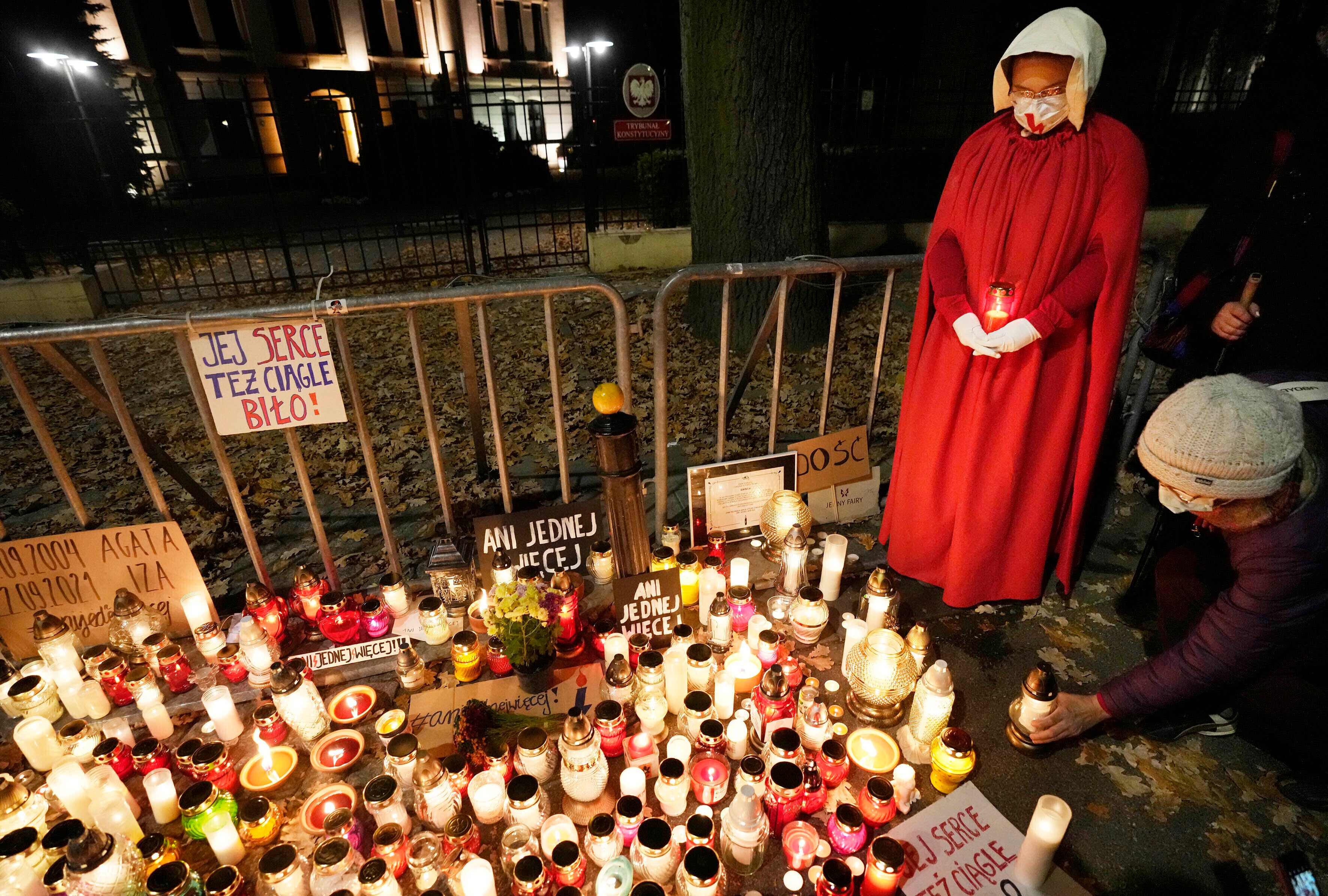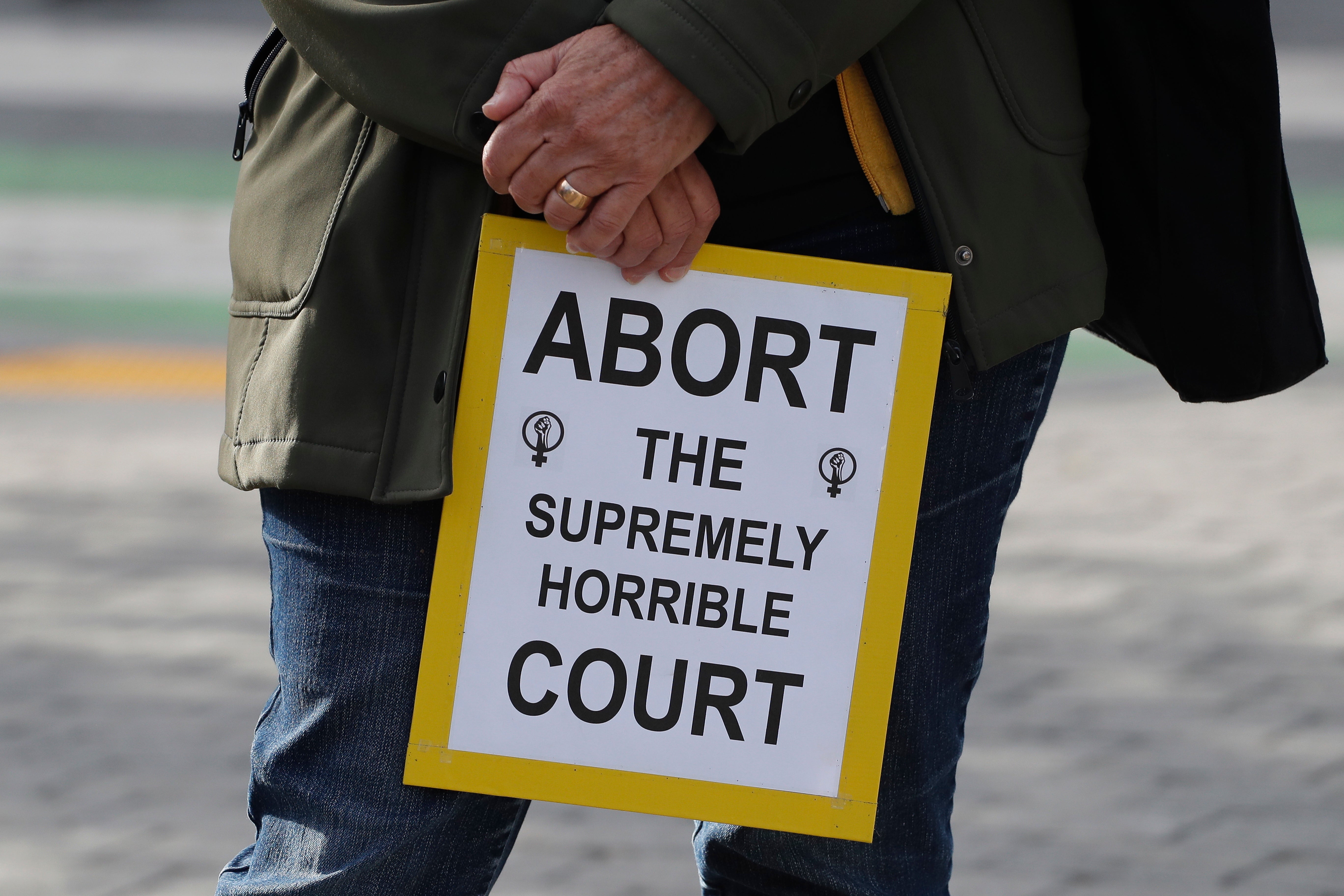Roe v Wade forces Europe to look at its own abortion laws
Criticism of the landmark Supreme Court ruling has been swift in Europe, but the situation here with regards to safe and legal access to abortion is a source of concern, writes Sofia Barbarani in Rome

European leaders have been vocal in their criticism of the decision by the US Supreme Court to overturn Roe v Wade, the 1973 landmark ruling that paved the way for constitutional protections for abortion in America.
From north to south, European countries denounced the controversial decision to revoke what reproductive-rights organisations have called a constitutional right to abortion.
In Germany, chancellor Olaf Scholz took to Twitter with the hashtag #RoeVsWade. “There is still a long way to go for gender justice. In Germany – and in many other parts of the world – women’s rights are threatened. We must defend them resolutely.”
“Making abortions illegal isn’t pro-life. It’s anti-choice,” Luxembourg prime minister Xavier Bettel tweeted. “It’s a social & economic injustice. And just so, so wrong. Reproductive rights are not just women’s rights. They are human rights. So let’s all stand up for them.”
British prime minister Boris Johnson said during a news conference in Kigali that the decision was “a big step backwards… I’ve always believed in a woman’s right to choose, and I stick to that view and that is why the UK has the laws that it does.”
French president Emmanuel Macron expressed his solidarity with the “women whose liberties are being undermined by the Supreme Court of the United States”, while in southern Europe Greek prime minister Kyriakos Mitsotakis called the ruling “a major step back in the fight for women’s rights”.
But while European leaders took to Twitter to hurl stones across the pond, the situation in Europe with regards to safe and legal access to abortion remains a source of concern.
For almost a century now European countries have liberalised abortion laws and legalised access to abortion.
But ongoing monitoring and analysis by the Centre for Reproductive Rights, a global advocacy organisation for reproductive rights, has shown that a range of “medically unnecessary procedural and regulatory requirements remain enshrined in some countries’ laws” creating major hurdles for pregnant women.

Last year a ranking compiled by pro-abortion rights groups had Sweden ahead of all other European countries for access to abortion, followed by Iceland and the UK, while at the bottom of the list were Poland, Malta and Andorra, where safe abortions are virtually impossible to obtain.
Malta, the only country in the European Union with a complete ban on abortion, made headlines on Friday when a pregnant American woman who suffered heavy bleeding while on holiday on the island was denied an abortion and was forced to travel to Spain.
Women who have abortions in Malta face up to three years in prison, while doctors who aid them in the process risk getting locked away for four years.
Poland, which in 2021 introduced one of the most restrictive abortion laws in Europe, recently contended with the death of a 37-year-old woman after doctors refused to perform the procedure after her foetus’s heart stopped beating.
Women in countries such as Poland, Malta and Andorra have two ways of accessing safe abortion, said Silvia De Zordo, a senior researcher at the Europe Abortion Access Project, an investigation funded by the European Research Council.
“First, using the help and support of organisations such as Women Help Women, which provide support for self-managed medication abortion at home. Second, if they can afford it and if organisations such as Abortion Without Borders can help them, they can travel abroad,” De Zordo told The Independent.
But women in European countries with more liberal abortion laws also face legal restrictions beyond the first trimester of pregnancy, as well as social barriers, a mandatory waiting period between mandated counselling and the procedure, and conscientious objection among physicians.
And the Supreme Court ruling has emboldened some in Europe, as evidenced by the intervention of Conservative MP Danny Kruger in the House of Commons this week, when he claimed women did not have an “absolute right of bodily autonomy” in the case of abortion.
International human rights law requires government to guarantee all refugees access to sexual and reproductive health care. But according to the Centre for Reproductive Rights, in many countries across Europe refugees do not have equal access and “European states are failing to comply with their international obligations to ensure access to affordable essential health care”.

To offset abortion laws in countries such as Malta and Poland, the European Parliament passed a resolution in June last year stating that safe access to abortion must be deemed a human right and called on member states to decriminalise the procedure and remove obstacles to legal abortion.
‘‘This vote marks a new era in the European Union and the first real resistance to a regressive agenda that has trampled on women’s rights in Europe for years,” said Predrag Fred Matić, a Croatian MEP who also drafted the text.
“Each EU member state can independently legislate on abortion,” said De Zordo. “So you may have beautiful wonderful declarations of the EU parliament on abortion rights… but still then each member state can do exactly what it wants.”
Join our commenting forum
Join thought-provoking conversations, follow other Independent readers and see their replies
Comments
Bookmark popover
Removed from bookmarks